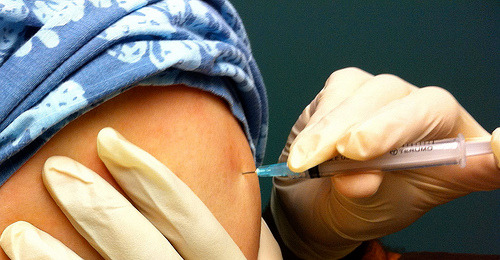
The last major review of the best available evidence found that vaccines are safe and that the MMR vaccine does not cause autism.
Now, we have new evidence that repeats what we already knew:
In a study that included approximately 95,000 children with older siblings, receipt of the measles-mumps-rubella (MMR) vaccine was not associated with an increased risk of autism spectrum disorders (ASD), regardless of whether older siblings had ASD, findings that indicate no harmful association between receipt of MMR vaccine and ASD even among children already at higher risk for ASD, according to a study in the April 21 issue of JAMA, a theme issue on child health.
Although a substantial body of research over the last 15 years has found no link between the MMR vaccine and ASD, parents and others continue to associate the vaccine with ASD. Surveys of parents who have children with ASD suggest that many believe the MMR vaccine was a contributing cause. This belief, combined with knowing that younger siblings of children with ASD are already at higher genetic risk for ASD compared with the general population, might prompt these parents to avoid vaccinating their younger children, according to background information in the article.
Vaccines work and their efficiency is indisputable — how come there are still antivaxxers out there?
